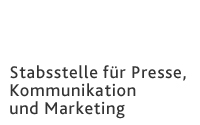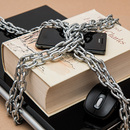Executive Department for
Press, Communication and Marketing
Adolf-Reichwein-Straße 2a Gebäude AVZ (Gebäudeteil AR-NA) 57068 Siegen
Phone: +49 (0)271/740-4915 Fax.: +49 (0)271/740-4911 E-Mail: presse@uni-siegen.de
When Fans Continue the Story
Intellectual Property Law: A project of the Siegen Collaborative Research Center "Media of Cooperation" deals with copyright in fanfiction.
"Harry Potter" author Joanne K. Rowling announced in 2016 that there would be a play in London's West End after the official end of her epic. Fans were filled with delight. In this alternative world Rowling created a reinterpretation of her own work. With something called fanfiction, fans themselves do something very similar. A fanfiction is a retelling of fans who move the characters to other levels, times, or places. Fans breathe new life into their favorite characters.
Fanfiction is not a niche product. Internet portals like "Archive of Our Own" or "FanFiktion.de" offer countless stories in so-called fandoms about Harry Potter, Supernatural or Yo-Gi-Oh. Fanfiction is a mass phenomenon, which became famous at the latest after the book success of "50 Shades of Gray", because the main protagonists "Anastacia and Christian" were called in the Internet fanfiction based on Twilight still "Edward and Bella".
Fans interpret and publish works worldwide, expressing their love for the characters and worlds. But who owns the rights to such works? Do fanfiction authors violate the copyrights of the original authors? Is the existing copyright law still up-to-date? Does it have to be adapted in view of the so-called "remix culture"?
The subproject "Media Practices and Copyright - Social and Legal Framework Conditions of Cooperative and Derivative Work on the Web" of the Siegen Collaborative Research Center (SFB) "Media of Cooperation" deals with these questions. "Using the example of fanfiction, we ask: what is originality? What is worth protecting, what not?” Wolfgang Reißmann, research assistant in the project explains. His colleague Kamila Kempfert adds: "Remixing, revision and re-editing are socially accepted forms of expression. This must also concern the legislature."
The subproject is divided into two pillars: First is the country-specific reappraisal of the legal status quo. In the process, the state of international copyright law is examined and sample models are filtered out. "We are investigating how foreign regulatory systems have proven themselves and to what extent they can serve as a model for German and European copyright law," says project staff member Sibel Kocatepe. In addition to the legal norms, foreign court rulings, in which copyright infringements are contested, are also of interest to the researchers.
The second pillar concerns empiricism. It consists of a qualitative interview study and ethnographic in-depth studies. So far, intensive discussions have been held with around 30 fan-fiction writers. What are the motivations? Which images do they have of themselves, others and the authors? Are they aware of possible copyright infringements? What is their perception of the platforms they publish on? How does writing look in practice? Especially the latter can be discovered much better from close proximity. Ethnography is there for that. Svenja Kaiser, student assistant in the project, is herself a fanfiction author. For half a year, she has co-written in a group that operates fanfiction as a role play. Currently, she supports a writer who produces and reads fanfiction for her YouTube channel.
Some authors write alone. Co-operation still happens, often with a proofreader, the "beta". Other authors write and engage in cooperative forms of writing. Especially digital platforms and tools allow a colorful variety of innovative styles of creation, even across time zones and national borders. This makes it clear: there is not just one form of fanfiction. The types of writing are just as varied as the fandoms themselves. What and when the authors write crops up in intervals: Star Trek, Lord of the Rings, Harry Potter, Twilight, and the BBC Sherlock series. Every fandom has "it’s time".
Among the writers, researchers discover a great deal of respect for the original authors. But, if these ban creative writing, it's not a hurdle for most to get creative. In a fan’s daily life, everyday conflicts are more likely to be played out among each other. "We interpret this as a practiced 'copyright' and deal with the pronounced and unspoken standards," explains Reißmann. It is also interesting that very few authors know that they themselves often produce legally protectable material.
At the moment, the researchers are mainly spurred by the questions of commercialization. So far in fanfiction culture, the maxim has been that readers' feedback, reviews, are the only 'currency'. But what happens when the symbolic currency is exchanged for a real one? If you make money advertising on YouTube, for instance? "Commercialization will keep us busy in the future," says Kocatepe. For works of creative art, the question always resonates: If the copyright is violated, which (fictitious) damage is caused? In order to finally obtain a comprehensive picture of the various interests of the individual actors, the subproject will therefore carry out interviews with platform operators, original authors and publishers in the coming investigation phase.
Background:
The project is one of 16 subprojects of the Collaborative Research Center "Media of Cooperation" at the University of Siegen. More than 60 scientists explore interdisciplinary cooperative practices in the context of the use of digital media, infrastructures and the (media) public.


